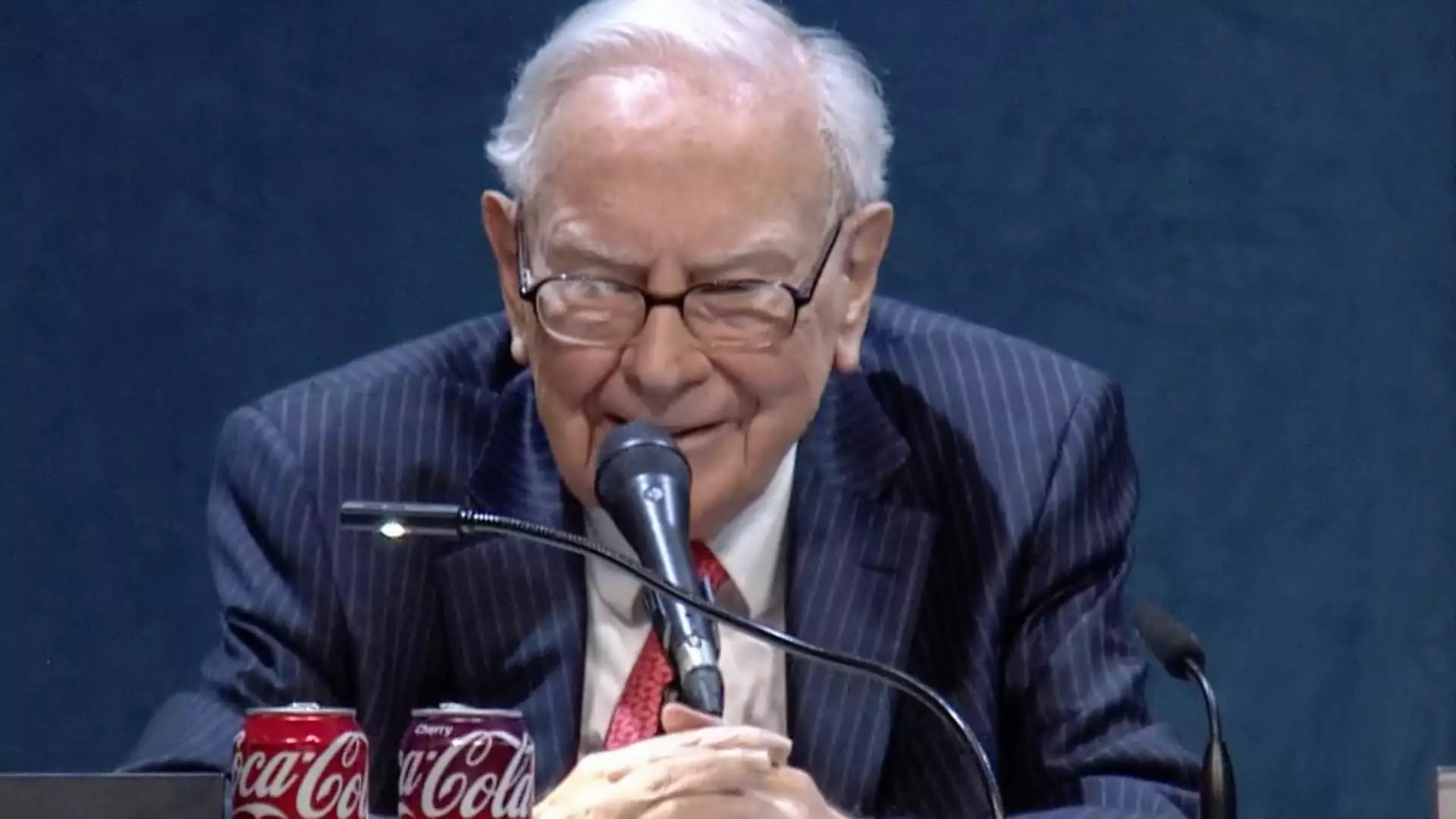Warren Buffett is often regarded as the oracle of Omaha, yet even the most revered figures can face daunting challenges. Berkshire Hathaway’s latest quarterly report, released recently, indicates a troubling decrease in operating earnings—a significant 14% decline—dropping to $9.64 billion from $11.22 billion in the previous year. Such a stark decline merits attention and introspection, especially as it showcases vulnerabilities plaguing even the most diversified conglomerates. What makes this scenario particularly alarming is the external context of increasing tariffs and unpredictable geopolitical landscapes potentially squeezing profit margins even further.
The fall in earnings isn’t just a statistical glitch; it reflects broader economic realities that cannot be ignored. A substantial part of the profit decrease is traced back to an astonishing 48.6% drop in insurance-underwriting profits. This decline results from events like the severe wildfires in Southern California, which alone inflicted a staggering $1.1 billion damage during the quarter. Such catastrophic incidents are not merely statistical outliers— they are harbingers of the economic volatility ahead.
The Threat of Tariffs and Global Instability
As we scrutinize the earnings dip, an essential factor comes into play: tariffs imposed during the Trump administration. With Berkshire Hathaway at the nexus of various industries spanning insurance, transportation, and retail, the conglomerate’s operational decisions are invariably tied to international trade policies. The uncertainty surrounding tariffs poses not just a short-term risk but a longer-term existential threat to how Berkshire operates in the global market.
How can a business develop sustainable strategies when the favorites of international trade cease to exist? The rhetoric from Berkshire Hathaway’s earnings report underpins this sentiment, where they candidly acknowledge the volatile macroeconomic environment. This uncertainty is compounded by fluctuating foreign exchange rates—the dollar lost significant ground during this quarter, resulting in an approximate loss of $713 million. These external shocks reveal a fragility in what appears to be an invulnerable economic titan.
Buffett has always been one to invest for the long term, yet in a climate of rapid change, investors may find it increasingly difficult to reconcile the traditional investment wisdom with emerging realities. If the actors in the finance community don’t start taking these warnings seriously, they might be left in the dust as the economic landscape shifts underfoot.
The Cash Hoard Paradox
Interestingly, amid dwindling earnings, Berkshire’s cash reserve has reached a record $347 billion—indicative of Buffett’s conservative approach in a climate rife with uncertainty. This might seem wise at first glance: a hefty cash hoard allows Berkshire to weather the storm and seize future investment opportunities. However, the paradox arises wherein such a large reserve, while providing security, can also represent inertia.
Buffett’s reticence to deploy this cash—evident as Berkshire was a net seller of stocks—may signal hesitation that can be detrimental in the long run. While caution can be prudent, prolonged inaction during pivotal market shifts may lead to missed opportunities. The balance between patient investing and timely action is delicate, and Buffett’s current strategy might reflect a miscalculation in this increasingly turbulent world.
Furthermore, investors are often advised to look beyond quarterly reports, but are we reaching a point where annual perspectives may not suffice? The pace and severity of economic changes are accelerating, leaving even seasoned investors vulnerable to disruptions.
In this climate, the notion that “investment gains or losses in any given quarter are usually meaningless” may be losing its validity. It’s essential to recognize that while Berkshire’s traditional weight on long-term growth has served it well, the ability to adapt to a rapidly changing economic landscape is imperative. If adaptive strategies aren’t employed quickly, the stakes are heightened—not just for the company but also for the numerous stakeholders reliant on its stability.
In the wake of these challenges, one can’t help but wonder: are we witnessing merely a hiccup for Berkshire Hathaway, or is it the start of a profound transformation in the investment landscape? The answers to these questions will unfold in the months and years to come.

